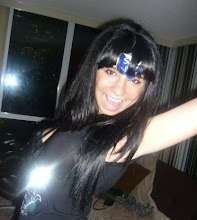 Title: Lula backs Iran's nuclear programme
Title: Lula backs Iran's nuclear programmeAuthor: Al Jazeera and agencies
Date: Tuesday, November 24th, 2009
Source: http://english.aljazeera.net/news/americas/2009/11/20091123202823289828.html
For my concluding entry I decided to turn to Al Jazeera English to examine the Iran nuclear sites issue. I had a prior feeling that Al Jazeera, the only independent news network in the Middle East, would try and take a look at this issue from a different angle (as opposed to Western views) due to its ongoing reputation, especially in the wake of 9/11, to present dissenting views. The content of this internet news article and subsequent news video clip proved my hypothesis to be correct. This was one of the very few news articles I found during the semester that examined how Iran does have nations (and a quite powerful one – Brazil) who supports its nuclear ambitions, as opposed to the six world powers who strictly oppose its program. Previous articles(BBC, CNN, Fox News) only focused their attention at how Iran was defiant and non-compliant with the requests of the world powers; nothing of Iran’s supporters was mentioned. Sardar and Van Loon would explain this by citing that cultural imperialism promotes a dominant set of cultural practices and values. Thus, the views of the West dominate the world media and depict Iran as evil.
 Luis Inacio Lula da Silva, the Brazilian president, who backs Tehran’s highly controversial nuclear programme said that "It's important that someone sits down with Iran, talks with Iran and tries to establish some balance so that the Middle East can return to a certain sense of normalcy." Up until now it appears as if world powers have isolated Iran and forced it to comply with their rules instead of seeking ways to push for peace and stability in the Middle East. The Brazilian president uses more conversational language to discuss the issue, "I told President [Barack] Obama, I told President [Nicolas] Sarkozy, I told [German] Chancellor Angela Merkel that we will not get good things out of Iran if we corner them. You need to create space to talk," he said last month. Of course, Al Jazeera also maintains its objectivity/journalistic integrity through the invocation of the ‘common ground’ and the coexistence of the ‘opposite opinion.’ (PowerPoint notes) Thus, it takes careful consideration to represent the views of the Brazilian opposition politicians in regards to this highly controversial matter.
Luis Inacio Lula da Silva, the Brazilian president, who backs Tehran’s highly controversial nuclear programme said that "It's important that someone sits down with Iran, talks with Iran and tries to establish some balance so that the Middle East can return to a certain sense of normalcy." Up until now it appears as if world powers have isolated Iran and forced it to comply with their rules instead of seeking ways to push for peace and stability in the Middle East. The Brazilian president uses more conversational language to discuss the issue, "I told President [Barack] Obama, I told President [Nicolas] Sarkozy, I told [German] Chancellor Angela Merkel that we will not get good things out of Iran if we corner them. You need to create space to talk," he said last month. Of course, Al Jazeera also maintains its objectivity/journalistic integrity through the invocation of the ‘common ground’ and the coexistence of the ‘opposite opinion.’ (PowerPoint notes) Thus, it takes careful consideration to represent the views of the Brazilian opposition politicians in regards to this highly controversial matter.  Matheson and Chomsky analyze how linguistics and semiotics work to shape rhetoric. They would thus argue that the rhetorical use of diction, grammar and tone in this article work to neutralize the issue and like the Brazilian president mentioned, “create space to talk” (i.e. the article is presented as being just and balanced on this issue). Evidence for this? For one, this is the only article out of the five that uses direct quotes from Iranian leader Mahmoud Ahmadinejad. Chomsky would also say that this news source is one of the more least likely ones to feel pressure from the five filters of The Propaganda Model. Meanwhile, Barthes would argue that the image accompanying the news story carries an ideological connotation; protests in Brazil, despite the support of their own president, show the growing fear of people in regards to nuclear Iran.
Matheson and Chomsky analyze how linguistics and semiotics work to shape rhetoric. They would thus argue that the rhetorical use of diction, grammar and tone in this article work to neutralize the issue and like the Brazilian president mentioned, “create space to talk” (i.e. the article is presented as being just and balanced on this issue). Evidence for this? For one, this is the only article out of the five that uses direct quotes from Iranian leader Mahmoud Ahmadinejad. Chomsky would also say that this news source is one of the more least likely ones to feel pressure from the five filters of The Propaganda Model. Meanwhile, Barthes would argue that the image accompanying the news story carries an ideological connotation; protests in Brazil, despite the support of their own president, show the growing fear of people in regards to nuclear Iran.

No comments:
Post a Comment